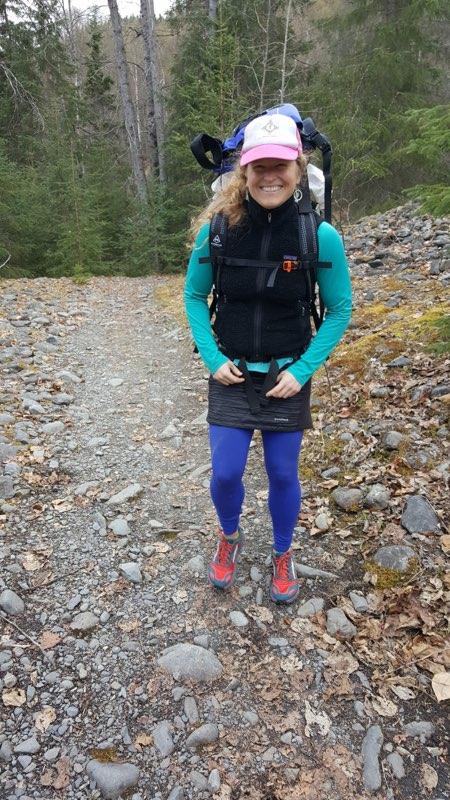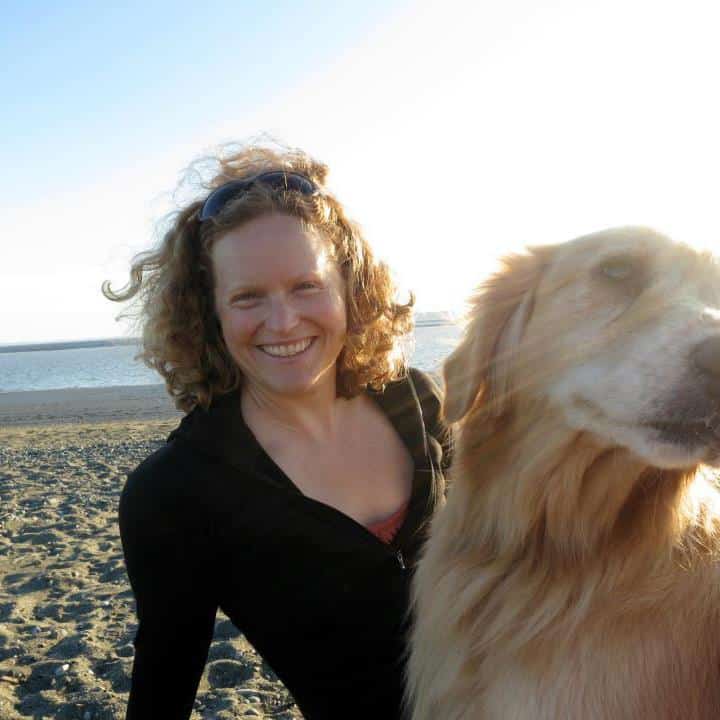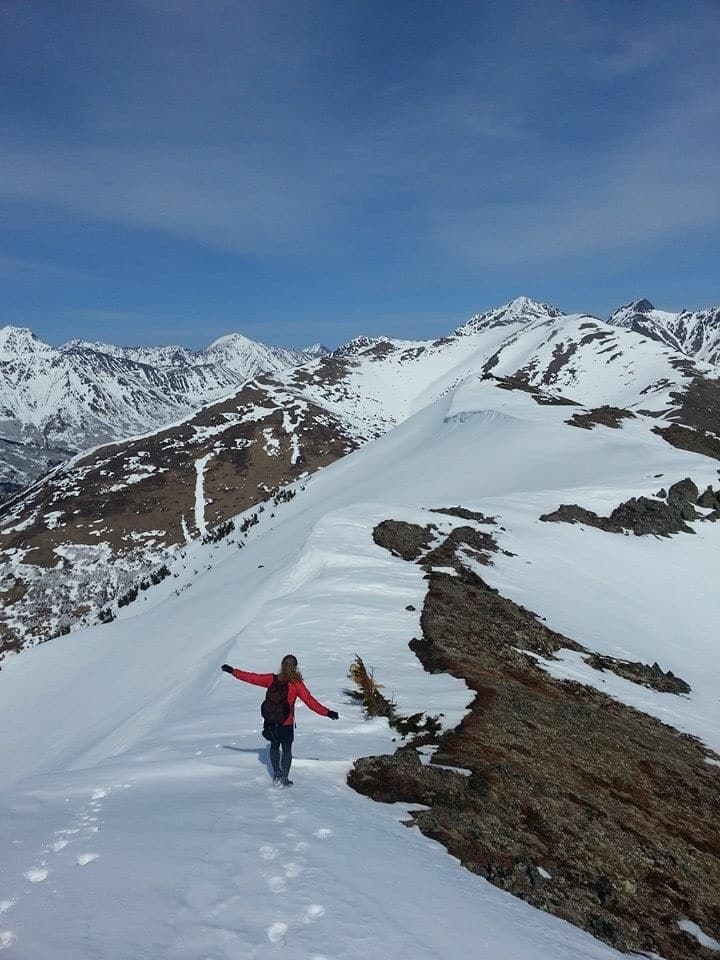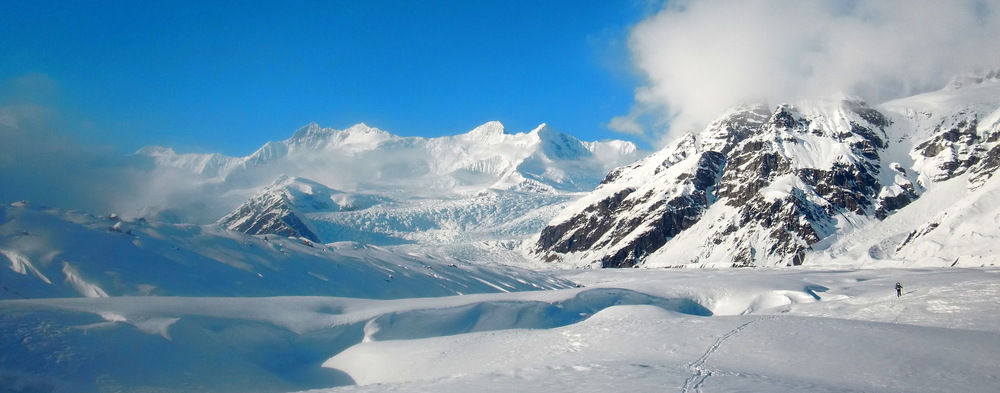
Drinks with lawyers—Katie talks about going into the unknown
By Dawnell Smith
At 28 and just a few years out of law school, Katie Strong left a policy-focused job in Yellowstone to work on the 2010 Pebble mine trial for Trustees for Alaska. She wanted to litigate and finally got her chance.

The landmark constitutional lawsuit challenged a state agency for issuing exploration permits without public notice. (We eventually won that case in the Alaska Supreme Court.)
At the time, Katie arrived as a young attorney who had spent many years in school, none in court. Thirteen years later, on the first of this month, Katie left Trustees as an experienced, respected senior attorney who litigated her heart out and now goes into the unknown.
She left her job with Trustees so she could be more fully with her family. She left so she could spend time with her daughter Hazel before Hazel heads to school, then grows up and out. She left so she and her family can get where they want to go rather than tread water .
“I don’t have a great plan for what’s next yet,” she Katie. “Part of it is terrifying, of walking away from the 20 years I committed to studying to be and then practicing as an excellent public interest lawyer, and part of it is exciting and a relief. I think the one thing I can say for sure is that we’re going to go out in the mountains together.”
On being the smaller animal

Katie skis, hikes, and runs long distances in cold, hot, gnarly conditions, and she has for some time. She’s done ultramarathons, the Alaska Mountain Wilderness Ski Classic, and an array of journeys that take her to places of great isolation and connection. She goes to these lands because they teach her things about life and, she said, pose the question, “Who’s being the smaller animal? You can run, you can hike, you can be the smaller animal. You can cultivate humility and awe.”
This humility and awe pervades Katie’s way of living. She’s thoughtful, grounded, often quiet, and when she speaks, she does so with clarity, power, and directness. She cares less about the limelight than about planting roots in the soil of purpose.
It makes sense for Katie, having grown up in a family of academics in Ironwood, Michigan, near Lake Superior, to carry that small-town professorial perspective built on a salt-of-the-earth foundation.
When she went to St. Olaf College near the Twin Cities, she thrived studying math but felt out of place with a student body with wealthier backgrounds, so she transferred to Michigan Tech where she majored in social sciences and got her master’s degree in environmental policy.
As the prospect of finding a job loomed, she perused the High Country News classified section and decided that “lawyer” looked like a good bet. “I felt ready to do something about the environment, not just study it,” she said, “and besides, if you get a PhD, you’re lucky to get a job. Being an attorney seemed less fraught.”

She quickly learned that public interest environmental lawyers don’t make a lot of money and face their own limited job prospects, so when she graduated from Lewis & Clark Law School in Portland, she moved to the Teton Valley of Idaho to do policy work for the Greater Yellowstone Coalition.
Her desire to litigate persisted, however, and she jumped at the opportunity to join Trustees. On the Tuesday after Labor Day, 2010, she started working on the Pebble mine lawsuit and then litigated on a range of issues around mining, public lands, and wildlife.
Hundreds of miles with just one wolf, one moose, one wolf track
When it comes to looking to the law for solutions, it’s important to know that it’s “only one tool in the toolbox to protect something,” said Katie. “The law can do a lot, but it’s not the answer. The lawyers are no more important than the advocates.”
Which begs the question of the unknown future. Katie doesn’t know what’s next, except summer with her family, days with less stress, and one day at a time, but she knows she won’t stay out of conservation work forever.
Her favorite part of lawyering involves the intellectual piece, she said. “I like crafting a good argument that’s objectively true. I like writing and presenting things in a compelling way. I like bringing all the facts and information together accurately while applying the art of presenting it in a powerful way.”
That drive will stay with Katie, who will continue helping to protect places and beings. National parks matter and they matter on the ground, she said, and several trips into Alaska’s backcountry last spring reminded her of that fact.
In the nine days she skied the Iditarod Trail, she heard one wolf, and saw one wolf track and one moose; in four days in Gates of the Arctic National Park she saw a cross fox (a cross between a red fox and Arctic fox), wolves and lots of wolf tracks, and tons of caribou. Protecting land matters in palpable ways, she said, and that includes ensuring you can encounter other beings.
“It’s big stakes here,” she said. “We’re not fishing for postage stamp wins in Alaska. We can still do things right. We can still save and protect rather than try to restore totally messed up ecological systems.”
With that much passion for the work, Katie understands that she’s taking a personal and professional risk by choosing to leave lawyering to make sure her family can take care of life business so they can enjoy the weekends and put good food on the table every night rather than plain noodles, “because we’re so exhausted, we haven’t had the energy to do anything else.”
She knows it’s a privilege to do this, too, and that what lies ahead will be different, challenging, and rewarding, as sure as it’s currently unknown–a vast snowy landscape into which she points her skis.
“Yes, I will come back to conservation work,” she said. “I’m not sure what the future holds, but I can say for sure that I’m not leaving because of lawyering. I love that job.”

This is the second in a series of profiles based on interviews with Trustees’ attorneys over drinks, this time over coffee at Fire Island Rustic Bakeshop in downtown Anchorage.
More in the drinks with lawyers series:


